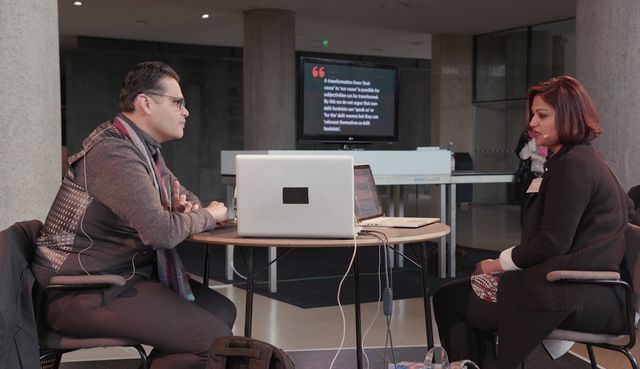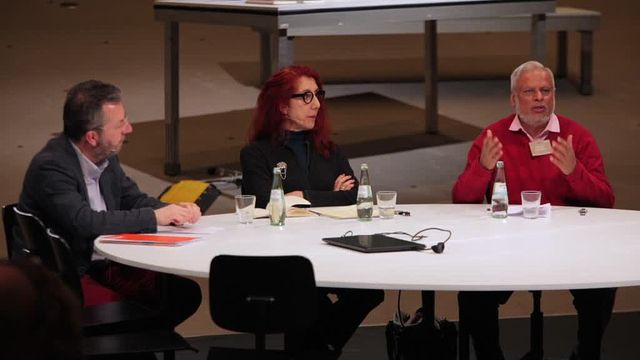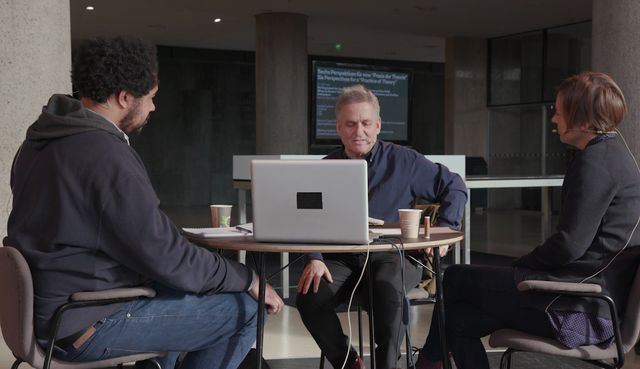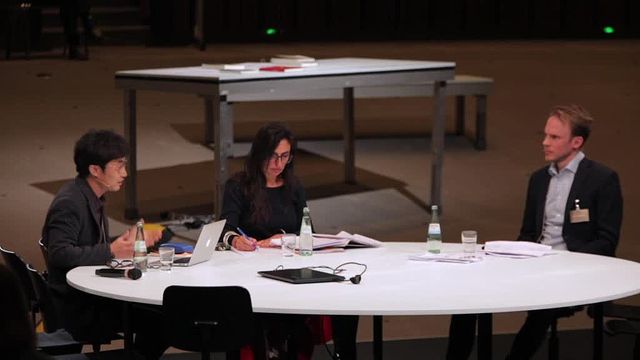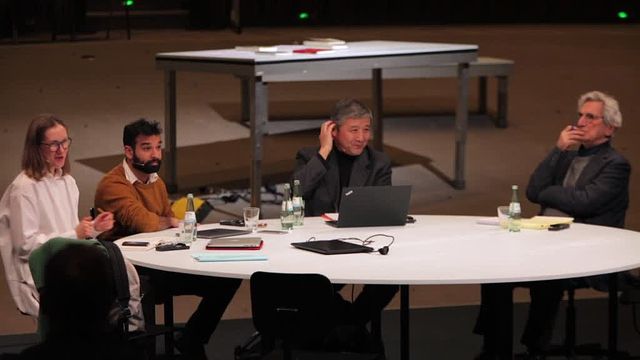Conversations
Six Perspectives for a “Practice of Theory”
With Norman Ajari, Petar Bojanić, Maria Chehonadskih, Karl Dahlquist, Maya Indira Ganesh, Nilüfer Göle, Alex Taek-Gwang Lee, Nasser Mufti, Antonio Negri, Nishant Shah, John Solomos, Chris Tedjasukmana, Kalindi Vora and many more

A series of conversations probe the topicality of the questions raised in Étienne Balibar and Immanuel Wallerstein’s Race, Nation, Class. They derive from a compilation of analyses of and reflections on the worldwide reverberations the authors initiated with their dialogic volume of essays thirty years ago. The talks take up these threads to discuss the fundamental enmeshment of racism, nationalism, and class relations against the backdrop of current global developments. How have the book’s theories been adapted, expanded, and criticized? How have they shifted within different local contexts around the world? What resonance do these theories have, say, in Russia, the region of former Yugoslavia, in South Korea, South Africa, the United States, or in India? The participants moreover look at what a “practice of theory” can signify today: How can the intersection of theory and practice be made productive again as an act of sociopolitical negotiation? The emergence of new geopolitics, the diagnosis of a post-apartheid condition as a globalized phenomenon, and the religionizing of politics in different localities are just three crucial issues to be further discussed.
2pm–3pm, Foyer
Maya Indira Ganesh and Nishant Shah
Data Discrimination, Dystopia, and the Future of Citizenship
The technical transformation of the body and the possibilities generated by digital communication and networking are often linked to the hope for a world in which racism has become obsolete. This hope is undone by the observation that racial discrimination is also registered in technological apparatuses. Digitization offers not only emancipatory opportunities but also fundamentally new methods of discrimination. Digital technologies increasingly regulate social interaction, raising new questions about citizenship. Will racism be made invisible in the digital age? What do racist configurations in technical apparatuses mean for a critique of contemporary racism?
3pm–4pm, Auditorium
Petar Bojanić, Nilüfer Göle, and Ranabir Samaddar
Where Is the Nation-Form? Social Communities between Religion, Populism, and Resistance
At present we are experiencing a renaissance or reform of nationalism. Populist rhetoric conjures up communities defined by the inclusions and exclusions of the nation-form and an essentializing concept of culture. The central role of religion as an identity-forming feature is particularly striking and noteworthy. Does the current success of populism follow the mechanisms of nationalism and racism analyzed by Balibar and Wallerstein, or are we witnessing an entirely new phenomenon? Is the resurgence of religion in populist discourse an indicator of the resurrection or rather of the crisis of the nation-form?
3.30–4.30pm, Foyer
Norman Ajari, Kelly Gillespie, and John Solomos
Where Is Racism? Global Apartheid, the Proliferation of Racisms, and New Antiracisms
Spatial segregation was a hallmark of racism during apartheid in South Africa. As a historical form, apartheid was fought and overcome, yet racist structures continue to manifest themselves spatially in countries throughout the world. In recent years, government responses to urban unrest in France, the US, and elsewhere have exposed how much state racism resorts to colonial ideologies and practices in terms of spatial organization. How do state segregation policies interact with postcolonial structures, and how can anti-racist critics expose this interaction?
4.30–5.30pm, Auditorium
Karl Dahlquist, Verónica Gago, and Alex Taek-Gwang Lee
Where Are Class Relations? On Contradiction and Compromise
Class compromise defuses class contradictions, and thus attenuates social antagonisms. Does the termination of class compromise and the crisis of the welfare state inevitably entail a renaissance of racist exclusion patterns? And what about societies where class compromise has never been as important as in Europe? A critical theory of racism must take into account forms of social conflict in light of the specific stratification of each particular society and analyze the articulation of present class conflicts within new racisms.
5–6pm, Foyer
Chris Tedjasukmana and Kalindi Vora
On Social Reproduction: Gender and Sexual Politics
According to Balibar and Wallerstein, racist and sexist structures are functionally similar: both employ varying market conditions that call for adapted employment practices and ideologies that legitimize ethnic and other exclusions. Currently, reproductive work is outsourced in the form of surrogate motherhood and care chains of paid and unpaid health and social work. The destabilization of traditional household and family structures has impacted gender and class relations. How do racist and sexist exclusion and inclusion mechanisms articulate under these circumstances? How can anti-racism and anti-sexism be thought together, and where can these struggles converge?
6–7.30pm, Auditorium
Maria Chehonadskih, Wang Hui, Nasser Mufti, and Antonio Negri
Where Are the New Geopolitics? Social Antagonisms and Shifts in the Nation-State System
Today, at the beginning of the twenty-first century, the relationship between the nation-state and geopolitical strategy poses new questions. To what extent do societal developments and antagonisms, especially with regard to newly emerging nationalisms and racisms, embroil geopolitical situations, and how can this interaction be interpreted? Is it possible to recast the manner in which contemporary racism is enacted on a global scale through a joint analysis of geopolitics and racist state policies? Do the current global shifts in the nation-state system also offer a practical critique of racist structures?
